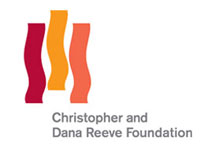Is the paralysis estimate science or politics


Is this science or politics?
Just as Dr. Douglas Gentile used a poll to create his videogame addiction scare, so Anthony Cahill of the University of New Mexico used a telephone survey, with 33,000 participants, to estimate the number of people suffering paralysis.
The study counted people as paralyzed if family members even found "difficulty" moving, and half of those identified are only having difficulty. The result was an estimate that 1.9% of Americans, nearly 6 million, suffer from full or partial paralysis.
The study also found twice as many people suffering from multiple sclerosis as previously estimated, nearly 1 million.
And the results were driven by the late Mr. Reeve's own agenda, admitted a foundation spokesman.
Still, the PR work preceding the release was masterful. There is no skepticism evident anywhere except at the New York Times concerning the estimate. The Washington Post even personalized the story by interviewing a man whose disability has grown worse as he aged.
None of this is to suggest that the study or its results should be dismissed. But extraordinary claims demand extraordinary proof. The idea that there are nearly 6 million paralyzed Americans is an extraordinary claim.
More research is needed.